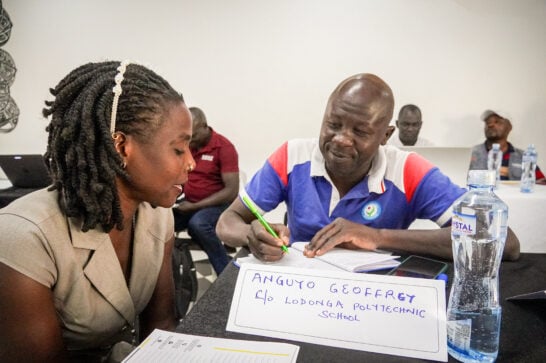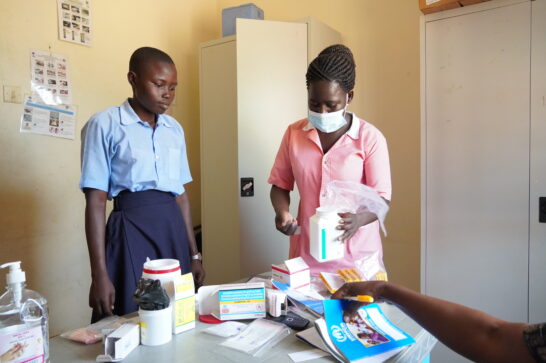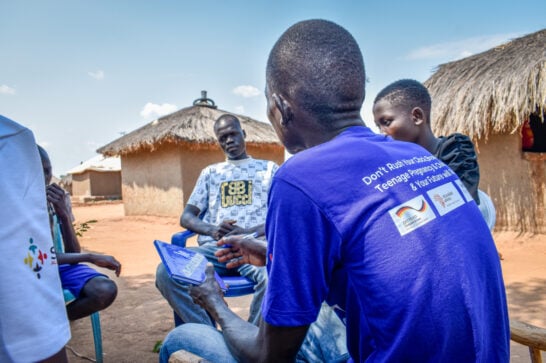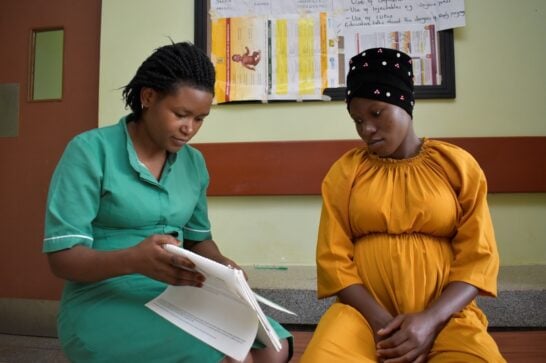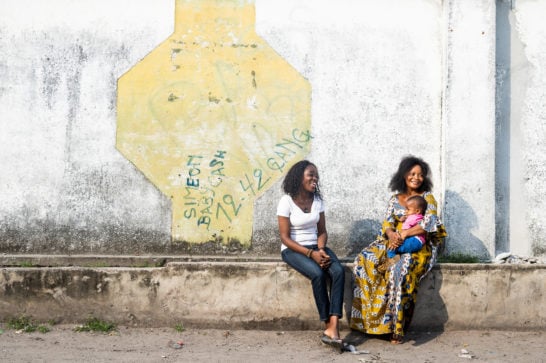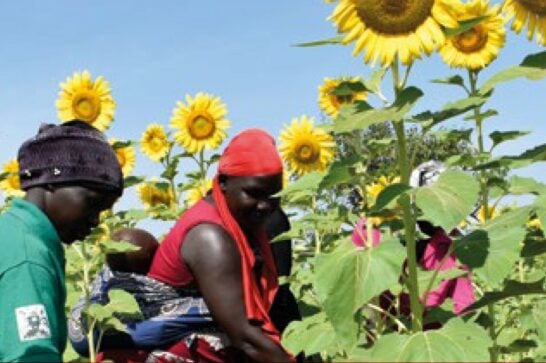Inclusive Vocational Education for Entrepreneurship Perspectives in Agriculture (closed project)
Cordaid, in partnership with CINOP, concluded a community agriculture skilling project in December 2022 which prepares youths to start businesses in agriculture.
In West Nile, Cordaid strengthened the roles of four technical vocational education and training institutions by integrating them into crucial agricultural value chains. This resulted in enhanced training availability and quality, which raised practical knowledge and increased entrepreneurial success in the communities.
The project recognises access to formal vocational training centres for youth as a means to increase productivity for the business sector but also gives young people the skills they need to find stable employment and a higher income.
The Future Makers Youth Agribusiness project (closed project)
Cordaid, in partnership with Youth Business International, implements a two-year project aimed at supporting young entrepreneurs to revive, strengthen and build business resilience following the diverse effects of COVID-19.
The project targets 700 young entrepreneurs in Lira, Nebbi and Zombo districts. The businesses include direct farming, value addition, agricultural transportation, agricultural produce and trade, and input shops. In Zombo, we focus on the coffee value chain. The project is part of the Future Makers global initiative to tackle inequality by promoting greater economic inclusion for disadvantaged young people, funded by Standard Chartered Bank.
Youth-Led COVID-19 Response (closed project)
In November 2022, Cordaid concluded the implementation of a healthcare project in the West Nile region of Uganda. The Youth-Led COVID-19 Response complements interventions implemented by Uganda’s Ministry of Health and other partners in responding to the pandemic, sexual and gender-based violence, mental health challenges, and its imminent effects.
The project integrated access to essential sexual and reproductive health and rights services and mental health and psychosocial support into the COVID-19 response, in the districts of Arua, Terego, and Adjumani.
WHERE WE WORK IN UGANDA
In the Central, North and West Nile regions, we support low-income farmers and producer organisations to increase economic opportunities improving and sustaining their livelihoods.
In eastern Uganda, Cordaid implements systems-strengthening projects for equitable access to quality basic services in health care and education in the districts of Kamuli, Bukwo, Budaka, Namayingo, Iganga and Kalangala, and in northern Uganda, the districts of Arua, Terego Adjumani and Yumbe.
In the districts of Bugiri, Mayuge, Iganga and Namayingo Mbale, Budaka, Bukwo, and Kween, as well as in Central Uganda Kalangala, we work on sexual and reproductive health and rights.
A-GRIP is implemented in 16 districts across 5 regions: Elgon region (Kapchorwa, Bulambuli, Bududa, Mbale), Busoga region (Buyende, Kamuli), Lango region (Alebtong, Lira), Western region (Bunyangabu, Kabarole, Kyenjojo, Kamwenge), South Western region (Rubanda, Kisoro, Rukiga, Kabale)
PARTNERS AND DONORS
Cordaid works in Uganda with both national and international partners including the Ugandan ministries of Health, Education and Sports, Agriculture, Animal Industries and Fisheries, Gender, Labour and Social Development, Land, Housing and Urban Development, and Local Government, AVSI, SRHR Alliance, Gesundes Afrika, Amref Health Afrika Uganda, TVET Institutes, RUFI, Enterprise Uganda, IUCN, ZOA, War Child NL, Rikolto Mezzanine, Nilecom, MFIs, SACCOS, NIRAS, PELUM, Caritas, Global Land Tool Network, Solidaridad Network, and African Network for the Prevention and Protection against Child Abuse and Neglect.
Recent donors include the World Bank, DFID, UNICEF, Gesundes Afrika, Dutch MFA, Dutch Embassy, DRA, Youth Business International, UNCDF, DFCD, Standard Chartered Foundation, IUCN, GIZ, Bread for the World, Global March Against Child Labour and WFP.
CONTACT
Address
Plot 12B, Faraday Road
Bugolobi, Nakawa Division
Next to MUBS Annex Bugolobi
Kampala
Uganda
The Uganda office is the seat of our East and South Africa Cluster.
Country Manager and Director of the East and South Africa Cluster
Heleen van der Beek
Email: [email protected]
Follow Cordaid Uganda
Instagram
Twitter
Facebook
Follow Cordaid East and South Africa
Twitter
LinkedIn

